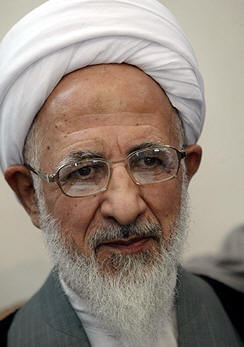Hawzah News Agency- But what is good? The Qur’an has the answer to this question. The Qur’an tells us that it contains truths that are beyond human ken, and if it wasn’t for revelation, mankind would never comprehend them.
Fundamentally speaking, the task of God’s prophets is not merely to recite scripture to their people, to
establish certain regulations, or to offer some superficial admonition. If it were such, it could have been
argued that human intellect could supersede divine revelation. But the Qur’an states,
As We sent to you an apostle from among yourselves, who recites to you Our signs, and purifies
you, and teaches you the Book and wisdom, and teaches you what you could not have known.12
It says “what you could not have known,” not “what you did not know.” That is, the apostle teaches
human beings what they cannot learn on their own, what defies technology and natural science.
Now let us see what the Qur’an teaches us. The Qur’an explains that human good lies beyond this material world, beyond worldly positions and wealth. To restrict one’s purview to these worldly matters is
to sell one’s soul in return for nothing. Those content with this world will have only this world.
There is a beautiful analogy in Surah Yunus and Hadid regarding the state of this world. The Qur’an likens this world to a lush garden in spring that receives abundant rainfall. This wonderful state, however,
is short-lived; autumn arrives and withers the plants and scatters the flowers. This is the reality of the
material world.
Of course, the blessings of this world are divine signs. Rivers, plants, seasons: these do not constitute
the base world. It is our desires that are base, not what exists in the real world, to which God refers as
His signs. It is the shattering of our dreams and desires that God thus depicts:
Then it becomes chaff, scattered by the wind.13
then it withers and you see it turn yellow, then it becomes chaff.14
The end of the base world is like chaff, scattered by the wind.
But what about the end of those content with the base world? The Qur’an says that their end is similar to
the end of the base world:
thus making them like chewed-up straw.15
Regarding the calamitous end of the people of Thamud, the Qur’an says,
We sent against them a single cry, and they became like the dry sticks of a corral builder.16
They enjoy the pleasures of this world, which is its spring, only to be separated by death from what they
cherished. The end of the base world and its admirers is turning into chaff. The end of the base world
and its admirers is one and the same, for they are in essence one thing.
Those content with the base world are perpetually in conflict; they vacillate for trivial reasons: “followers
of every caller, bending with every wind.”17 They quarrel as long as they are in this world, and when
they enter Hell, they continue their quarrel:
Every time that a nation enters [Hell], it will curse its sister [nation].18
But those who succeed in attaining to inner unity—by bringing all their faculties under the guidance of
the soul—and who live in a unified Islamic state lead a heavenly life. Even as those residing in heaven
hold no grudges against one another, there are no conflicts among true believers in this world.
Describing people in heaven, God says,
We will remove whatever rancor there is in their breasts; as brothers, [they will recline] on
couches, facing one another.19
People in heaven harbor no rancor in their hearts. Residents of heaven see one another at all times. It is
not that they see one another only while reclining on couches; rather, they are always together. This is
the spirit of those residing in heaven.
True believers ask God to give them this spirit in this world:
[They] say, “Our Lord, forgive us and our brethren who were our forerunners in faith, and do not
put any rancor in our hearts toward the faithful.20
Not only do true believers wish to remove rancor from their own hearts, they wish to see all conflicts
among believers disappear.
12. Qur’an 2:151.
13. Qur’an 18:45.
14. Qur’an 57:20.
15. Qur’an 105:5.
16. Qur’an 54:31.
17. Nahj al-Balaghah, Sayings: 147.
18. Qur’an 7:38.
19. Qur’an 15:47.
20. Qur’an 59:10.
Reference:
Ayatullah Jawadi Amuli, Elements of Unity, Journal: volume-2-number-3-winter-2008
Translated by D.D. Sodagar,Published by Al-Taqrib Qom

